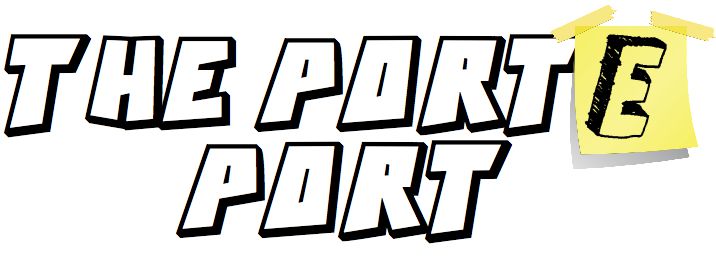Writing More Immersive Characters (By Binge-Watching The Office)
Who knew a show about a smart-ass making faces at the camera, a boss that's fire-able every single episode, and a beet farmer would make for one of the most popular shows of all time?
Yet, The Office is Netflix's top show years after the series has come to an end.
I would say Tiger King would give it a run for its money, but you watch all of that in a sitting because you can't help yourself, then take a shower and never watch it again.
How many times have you rewatched The Office?
I'm terrified to know the number of times I have. Watching it, playing it in the background, and waking up to Netflix asking if I'm still watching with Dorito crumbs on my shirt.
It's a lot. Let's leave it at that.
Why has it fascinated countless people to rewatch it time and time again?
You can argue the humor is timeless. (Ah remember when Trump was just a joke because only people like Michael Scott thought he was intelligent. Those were the days.)
You'd be tempted to point out the slow burn of Jim and Pam's relationship.
It's easy to argue that it hinged on Steve Carrell's brilliance.
And you wouldn't be wrong. Those are all a part of the tapestry. But those are all orbiting around one thing:
Our attachment to the characters.
I can talk all day about the obvious things we latch onto. Jim's pranks, Michael's shenanigans, or Creed's one-liners. But, I think we should explore the subtle characterizations.
I've written before about how the little character moments can immerse your audience. So let's see how The Office uses little moments to make it one of the most-watched shows of all time. (And how that will make your characters more immersive too.)
Pam
The first three seasons, and I would argue the fourth too, really set the standard for the show.
But, Season 3 might be one of the hardest seasons to watch because of how harsh it is to Pam.
So many times, I find myself feeling hurt for her. But I have to hand it to the writers, all of that plays into her character development.
Like this little moment:
Pam begins to stand up for herself...even though I'm certain it's Roy's Season 3 beard that convinces her to go back to him. Peak Roy, let's face it.
Anyway, she makes a joke saying that "from now on, Pammy is going to get what she wants."
Then:
"And don't call me Pammy."
Just another funny/quirky Office line.
Or is it?
The genius of the humor in the show is that most of it is there to make us laugh, sure. But, there's usually something deeper going on.
In this case, Roy and Pam meet an episode later to say goodbye forever. Roy just trashed an entire pub and then tried to assault Jim at work. So, kinda a deal breaker there.
DON'T YOUR DARE HURT PRECIOUS JOHN KRASINSKI!
I digress.
Roy calls her Pammy.
I don't think that was done by accident. She doesn't like it because Roy calls her that. Ultimately she hates who she is with Roy–she's Pammy.
Now that line is more than just an off-hand joke. It's character development.
Jim
This one shows just how much I've watched The Office and it's embarrassing.
Remember Jim's house party? The one Michael isn't invited to but then ends up going and singing karaoke?
A few things are going on here.
First, Jim ends up singing karaoke with Michael because, even though his boss is intrusive, immature, and harasses his workers, Jim is someone who won't let a man die an embarrassing social death singing karaoke alone.
Now, if my wife could learn from this and let me out of a bet I lost (and now have to sing karaoke and probably implode upon myself), that would be great. A lot to learn from Jim here, just saying.
The hero we need
The subtle part comes in when we get to see Jim's room. And who doesn't want to see that? Hiding on the far side is a guitar.
When do we see Jim play a guitar?
Never.
How many times do we see Jim complain about how boring and stifling working for a paper company is?
Almost every episode.
Later in the show, we see Jim make a Second Life character to follow Dwight's character around. God, out of context, explaining Jim's pranks on Dwight makes him sound insane. Whelp back to it.
Jim gives himself a guitar in the game. Then Pam makes fun of him.
Why have that moment?
Again it's funny and quirky, and we're here for it.
But we writers go deeper because there's more character development going on here.
Jim never learns guitar because his job stifles all the creativity out of him. Plus, it's hard. And Jim isn't too motivated to keep pushing through difficult things. (He becomes really awkward when social situations don't go his way like when he barges in on someone on the toilet, for example.)
Jim is meant for something more than selling paper at this tiny company. He just doesn't see it. And never works for it.
It's only when Pam comes into his life that he starts to try a little more.
When Ryan puts him on probation, Jim has to try and sell to a client that wants nothing to do with switching over to Dunder Mifflin.
But then Jim talks to Pam on the phone who makes him smile. It's an innocent conversation, and she doesn't even realize what the situation is. She's just herself.
And that's when he pushes through the failure and gets the sale.
Pam was the muse missing from his life.
Michael
This show insists that Michael Scott is a raving idiot that has no social skills whatsoever. He is so self-absorbed and immature that most of what he does is utterly cringe-worthy to any around him.
And that's essentially true.
It is, and you know it!
But, he does operate at extreme levels for the camera. His real personality is a little more toned-down. Not a whole lot, but a little.
Michael is someone that lets the people he thinks are cool, funny, or hot dictate everything about him. All he wants is to be those things, so he does anything those kinds of people do. This creates a hodge-podge of crazy.
Until he meets Holly, who is just a dork like him. She slowly lets him see who he is.
She helps him realize Ryan is a jackass. She helps him see that Todd Packer is a total dick, and worse, isn't even funny to begin with. And he even realizes how silly his projects like Threat Level Midnight are.
She doesn't do this by forcing him to be something he isn't. Quite the opposite. She lets him see that he's just a (mostly) good-intentioned dork, and that's ok.
We already know this because of tiny moments scattered throughout the show like this one:
In Season 2, Michael has to fire someone and waits until Halloween to do it. I guess losing your job is the biggest scare you can get, after all.
As horrible as he is the entire episode, he is really just misunderstood.
The show finishes with a hidden camera at his house. (Creepy when you think about it.)
Michael accidentally drops a bunch of candy on the ground to some trick-or-treaters. He is genuine about how much he loves their costumes and lets them have whatever candy they can get.
It's surprisingly sincere.
When we ask, why the hell do we cry when Michael leaves? Why, after all the terrible things he does? It's moments like this that answer the question.
Little moments help us see who a character really is.
When you are writing your story's characters, don't forget the subtle details.
We will all get to see their overt actions. There's no way to avoid the tension between Jim and Pam during those first few seasons. But, make sure we get the little things too.
We need those Pammy moments or Jim's guitar. The subtle things go into our subconscious as we immerse ourselves in a fictional world and lets us believe it's real.
That's what you want out of your audience too.
Make it real. Weave the subtle character development into your scenes. When can a joke be funny...but also tell part of the story?
That kind of writing makes a story last. The Office writers knew that, and here we are still gushing over it.
Now if you will excuse me, I'm going to go watch a few episodes.
Before you do too, I would love to geek out more with you. Our favorite stories reveal incredible writing techniques that make our own fiction stronger. Sign up for my newsletter below and learn more about writing like a geek!











